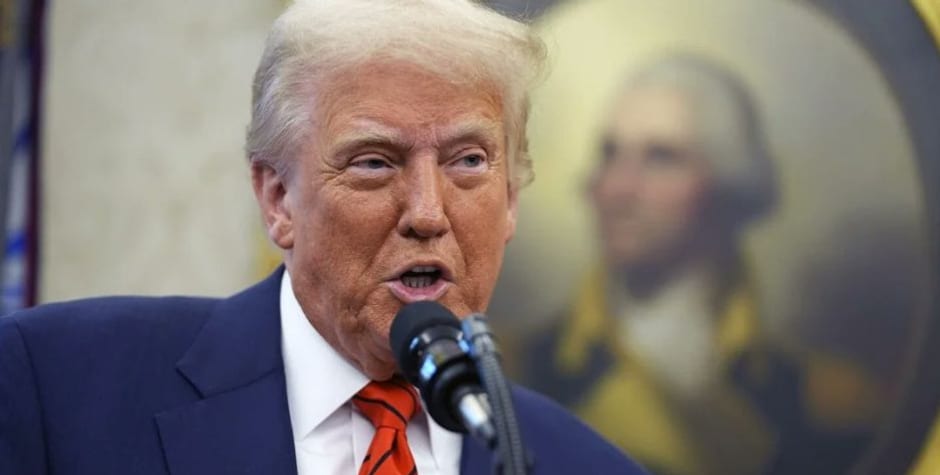

Donald Trump Protects American Christians, What Is Europe doing?
Trump Protects American Christians, What Is Europe doing?
While Donald Trump is setting up a federal task force to combat anti-Christian hatred and protect Christians in the United States, the European Union remains passive in the face of the rising attacks against Christians in Europe. The ECLJ denounces the ideological hostility toward Christianity and the culpable indifference to the attacks Christians are suffering.
American President Donald Trump positioned himself as the spokesman in the fight against anti-Christian hatred and acts in the United States during his speech at the annual National Prayer Breakfast in Washington on February 6, 2025. According to Trump, "it is high time" to create a task force to "eradicate anti-Christian bias" within the federal government and American society at large. The Attorney General (the equivalent of the Minister of Justice) Pam Bondi will lead the initiative.
This task force will be responsible for putting an end to discrimination against Christians within public institutions, notably in the Department of Justice, the tax service, and the FBI. Trump explained that this group would also “prosecute acts of anti-Christian violence and vandalism in society and move heaven and earth to defend the rights of Christians and believers across the country”.
President Trump reaffirmed his personal commitment to Christians, stating, as in his inaugural speech, that “God had saved him” from an assassination attempt in Pennsylvania on July 13, 2024. He announced the creation of a Faith Office at the White House, placed under the leadership of televangelist Paula White, his longtime spiritual advisor.
In Europe, the Taboo of Anti-Christian Hatred
While the United States is taking measures to protect Christians, in Europe, no one seems to care. Yet, according to the Observatory on Intolerance and Discrimination against Christians in Europe (OIDAC), 2,444 hate crimes against Christians were recorded in 35 European countries in 2023. The most common forms of violence include vandalism (62%), arson (10%), threats (8%), and physical assaults (7%). Regarding physical violence, converts to Christianity from a Muslim background are particularly vulnerable, as the European Centre for Law and Justice (ECLJ) had already highlighted in a report published in March 2021.
Despite this reality, the European Union has no specific mechanism to combat anti-Christian violence and discrimination. It refuses to take action, even though it recognizes and fights against other forms of religious discrimination. In fact, in 2015, it appointed two coordinators responsible for combating antisemitism and anti-Muslim hatred. Why nothing for Christians? This unequal treatment is as unjustifiable as it is disrespectful. The ECLJ has been advocating for several years for the EU to take this issue seriously.
Ideological Reluctance Toward Europe’s Christian Roots
Because Christians have historically been the majority in Europe, does that mean they cannot be victims of systemic discrimination, unlike other religious minorities? This biased perception contributes to making the growing hostility they face invisible. In progressive circles and secular left-wing movements, Christianity is still associated with a history of oppression and conservatism. As a result, merely expressing Christian positions on social issues, such as opposition to abortion, is often equated with hate speech.
The European Union is ready to accept all sorts of contradictions. For example, the Christian prayer app “Hallow”, which reached the top spot on Apple’s App Store in 2024, is now struggling to function within the EU. Its CEO, Alex Jones, expressed concern that strict regulations were effectively shutting down religious apps. Meanwhile, the same European regulations are forcing Apple to allow a pornographic app on iPhones, accessible through Alt Store, an alternative app marketplace introduced to comply with competition rules.
While American Christians are among the priorities of Donald Trump’s new term, the European Union persists in a concerning state of denial. It must put an end to its hypocrisy and ensure equal protection for all religious communities, starting with those that shaped Europe. For the sake of consistency, the EU should reconnect with its Christian roots rather than further normalizing a form of sexual exploitation and a variant of prostitution.









